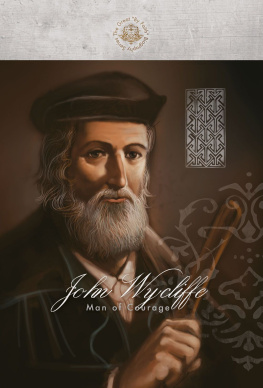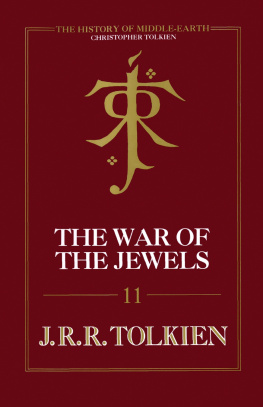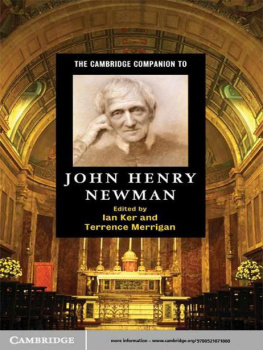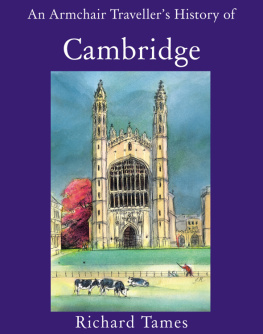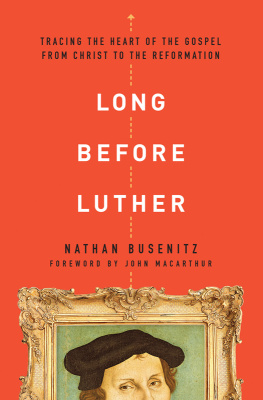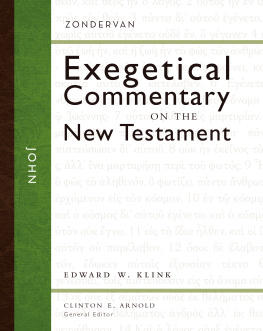John Jewel - An Apology Of The Church Of England
Here you can read online John Jewel - An Apology Of The Church Of England full text of the book (entire story) in english for free. Download pdf and epub, get meaning, cover and reviews about this ebook. year: 2002, publisher: Church Publishing, genre: Science. Description of the work, (preface) as well as reviews are available. Best literature library LitArk.com created for fans of good reading and offers a wide selection of genres:
Romance novel
Science fiction
Adventure
Detective
Science
History
Home and family
Prose
Art
Politics
Computer
Non-fiction
Religion
Business
Children
Humor
Choose a favorite category and find really read worthwhile books. Enjoy immersion in the world of imagination, feel the emotions of the characters or learn something new for yourself, make an fascinating discovery.
- Book:An Apology Of The Church Of England
- Author:
- Publisher:Church Publishing
- Genre:
- Year:2002
- Rating:5 / 5
- Favourites:Add to favourites
- Your mark:
- 100
- 1
- 2
- 3
- 4
- 5
An Apology Of The Church Of England: summary, description and annotation
We offer to read an annotation, description, summary or preface (depends on what the author of the book "An Apology Of The Church Of England" wrote himself). If you haven't found the necessary information about the book — write in the comments, we will try to find it.
An Apology Of The Church Of England — read online for free the complete book (whole text) full work
Below is the text of the book, divided by pages. System saving the place of the last page read, allows you to conveniently read the book "An Apology Of The Church Of England" online for free, without having to search again every time where you left off. Put a bookmark, and you can go to the page where you finished reading at any time.
Font size:
Interval:
Bookmark:
Jewel, Edited by Henry Morley
This eBook is for the use of anyone anywhere at no cost and with
almost no restrictions whatsoever. You may copy it, give it away or
re-use it under the terms of the Project Gutenberg License included
with this eBook or online at www.gutenberg.org
Title: The Apology of the Church of England
Author: John Jewel
Editor: Henry Morley
Release Date: February 5, 2006 [eBook #17678]
Language: English
Character set encoding: ISO-646-US (US-ASCII)
***START OF THE PROJECT GUTENBERG EBOOK THE APOLOGY OF THE CHURCH OF ENGLAND***
Transcribed from the 1888 Cassell and Company edition by David Price, email ccx074@coventry.ac.uk
by
JOHN JEWEL,
Bishop of Salisbury.
CASSELL & COMPANY, Limited :
LONDON, PARIS, NEW YORK & MELBOURNE.
1888.
The great interest of Jewels Apology lies in the fact that it was written in Latin to be read throughout Europe as the answer of the Reformed Church of England, at the beginning of Queen Elizabeths reign, to those who said that the Reformation set up a new Church. Its argument was that the English Church Reformers were going back to the old Church, not setting up a new; and this Jewel proposed to show by looking back to the first centuries of Christianity. Innovation was imputed; and an Apology originally meant a pleading to rebut an imputation. So, even as late as 1796, there was a book called An Apology for the Bible, meaning its defence against those who questioned its authority. This Latin book of Jewels, Apologia Ecclesi Anglicanwritten in Latin because it was not addressed to England onlywas first published in 1562, and translated into English by the mother of Francis Bacon, whose edition appeared in 1564. That is the translation given in this volume. The book has since had six or seven other translators, but Lady Ann Bacons translation was that which presented it in Queen Elizabeths time to English readers, and it had the advantage of revision by the Queens Archbishop of Canterbury, her coadjutor in the establishment of the Reformed Church of England, Matthew Parker. It was published, with no name of author or translator on the title-page, as An Apologie or answere in defence of the Churche of Englande, with a briefe and plaine declaration of the true Religion professed or used in the same. The book was prefaced by a letter, To the right honorable learned and vertuous Ladie, A. B. [Ann Bacon] M. C. wisheth from God grace, honoure, and felicitie, where M. C. signifies Matthew Cantuar, Matthew Parker, Archbishop of Canterbury, whom Lady Ann Bacon had made her judge, and whose judgment, the letter says, her book had singularly pleased.
Lady Ann Bacon was the second daughter of Sir Anthony Cooke, who was tutor to King Edward VI. Sir Anthony gave to his five daughters a most liberal education. His eldest daughter, Mildred, married Sir William Cecil, afterwards Lord Burleigh, while Ann became the second wife of the Lord Keeper, Sir Nicholas Bacon. Their father had made Mildred and Ann two of the most learned women in England.
John Jewel was forty years old when he wrote the Apology. He was born in Devonshire in 1522, on the 24th of May, at the village of Buden, near Ilfracombe. He studied at Oxford, where he became tutor and preacher, graduated as B.D. in 1551, and was presented to the rectory of Sunningwell. At the accession of Queen Mary he bowed to the royal authority, but he was a warm friend and disciple of Peter Martyr, who had come to England in 1547, at the invitation of Edward VI., to take the chair of Divinity at Oxford. On the accession of Queen Mary, Peter Martyr (who was born at Florence in 1500, and whose family name was Vermigli) returned to Strasburg, and went thence to Zurich, where he died in 1562. Jewel, repenting of his assent to the new sovereigns authority in matters of religion, followed his friend Peter Martyr across the water, and became vice-master of a college at Strasburg. Upon the accession of Elizabeth, in 1588, Jewel came back, and he was one of the sixteen Protestants appointed by the Queen to dispute before her with a like number of Catholics.
In 1559 John Jewel was appointed a commissioner for securing, in the West of England, conformity with the newly-arranged Church service, and he had to see that the Queens orders were obeyed in the churches of his native county. Before the end of the same year he was consecrated Bishop of Salisbury. He was most zealous in performance of all duties of his charge. To his good offices young Richard Hooker owed his opportunity of training for the service of the Church. Among Jewels writings, this Apology or Defence of the Church of England was the most important; but he worked incessantly, and shortened his life by limiting himself to four hours of sleep, taken between midnight and four in the morning. Bishop Jewel died on the 21st of September, 1571, before he had reached the age of fifty.
H. M.
With a Brief and Plain Declaration of the True Religion Professed and Used in the Same.
It hath been an old complaint, even from the first time of the patriarchs and Prophets, and confirmed by the writings and testimonies of every age, that the truth wandereth here and there as a stranger in the world, and doth readily find enemies and slanderers amongst those that know her not. Albeit perchance this may seem unto some a thing hard to be believed, I mean to such as have scant well and narrowly taken heed thereunto, specially seeing all mankind of natures very motion without a teacher doth covet the truth of their own accord; and seeing our Saviour Christ Himself, when He was on earth, would be called the Truth, as by a name most fit to express all His Divine power; yet we, which have been exercised in the Holy Scriptures, and which have both read and seen what hath happened to all godly men commonly at all times; what to the Prophets, to the Apostles, to the holy martyrs, and what to Christ Himself; with what rebukes, revilings, and despites they were continually vexed whiles they here lived, and that only for the truths sake: we, I say, do see that this is not only no new thing, or hard to be believed, but that it is a thing already received, and commonly used from age to age. Nay, truly, this might seem much rather a marvel, and beyond all belief, if the devil, who is the father of lies, and enemy to all truth, would now upon a sudden change his nature, and hope that truth might otherwise be suppressed than by belying it; or that he would begin to establish his own kingdom by using now any other practices than the same which he hath ever used from the beginning. For since any mans remembrance we can scant find one time, either when religion did first grow, or when it was settled, or when it did afresh spring up again, wherein truth and innocency were not by all unworthy means, and most despitefully intreated. Doubtless the devil well seeth, that so long as truth is in good safety, himself cannot be safe, nor yet maintain his own estate.
For, letting pass the ancient patriarchs and Prophets, who, as we have said, had no part of their life free from contumelies and slanders, we know there were certain in times past which said and commonly preached, that the old ancient Jews (of whom we make no doubt but they were the worshippers of the only and true God) did worship either a sow, or an ass, in Gods stead, and that all the same religion was nothing else but a sacrilege, and a plain contempt of all godliness. We know also that the Son of God, our Saviour Jesu Christ, when He taught the truth, was counted a juggler and an enchanter, a Samaritan, Beelzebub, a deceiver of the people, a drunkard, and a glutton. Again, who wotteth not what words were spoken against St. Paul, the most earnest and vehement preacher and maintainer of the truth? sometime that he was a seditious and busy man, a raiser of tumults, a causer of rebellion; sometime again, that he was an heretic; sometime, that he was mad; sometime, that only upon strife and stomach he was both a blasphemer of Gods law, and a despiser of the fathers ordinances. Further, who knoweth not how St. Stephen, after he had thoroughly and sincerely embraced the truth, and began frankly and stoutly to preach and set forth the same, as he ought to do, was immediately called to answer for his life, as one that had wickedly uttered disdainful and heinous words against the law, against Moses, against the temple, and against God? Or who is ignorant that in times past there were some which reproved the Holy Scripts of falsehood, saying they contained things both contrary and quite one against other; and how that the Apostles of Christ did severally disagree between themselves, and that St. Paul did vary from them all? And, not to make rehearsal of all, for that were an endless labour, who knoweth not after what sort our fathers were railed upon in times past, which first began to acknowledge and profess the Name of Christ? how they made private conspiracies, devised secret counsels against the commonwealth, and that end made early and privy meetings in the dark, killed young babes, fed themselves with mens flesh, and, like savage and brute beasts, did drink their blood? in conclusion, how that, after they had put out the candles, they committed adultery between themselves, and without regard wrought incest one with another: that brethren lay with their sisters, sons with their mothers, without any reverence of nature or kin, without shame without difference; and that they were wicked men without all care of religion, and without any opinion of God, being the very enemies of mankind, unworthy to be suffered in the world, and unworthy of life?
Font size:
Interval:
Bookmark:
Similar books «An Apology Of The Church Of England»
Look at similar books to An Apology Of The Church Of England. We have selected literature similar in name and meaning in the hope of providing readers with more options to find new, interesting, not yet read works.
Discussion, reviews of the book An Apology Of The Church Of England and just readers' own opinions. Leave your comments, write what you think about the work, its meaning or the main characters. Specify what exactly you liked and what you didn't like, and why you think so.

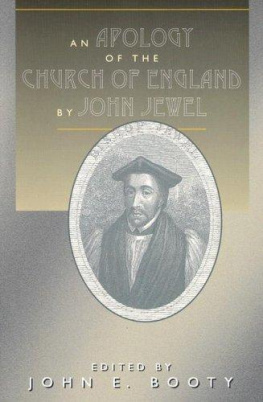
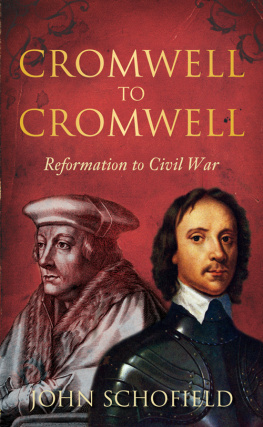
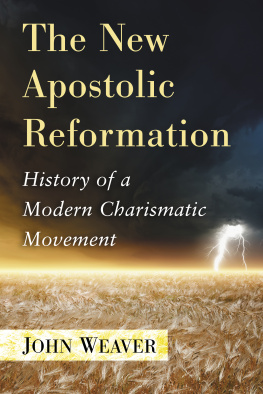
![Blessed John Henry Newman - Blessed John Henry Newman Collection [26 Books]](/uploads/posts/book/371011/thumbs/blessed-john-henry-newman-blessed-john-henry.jpg)
